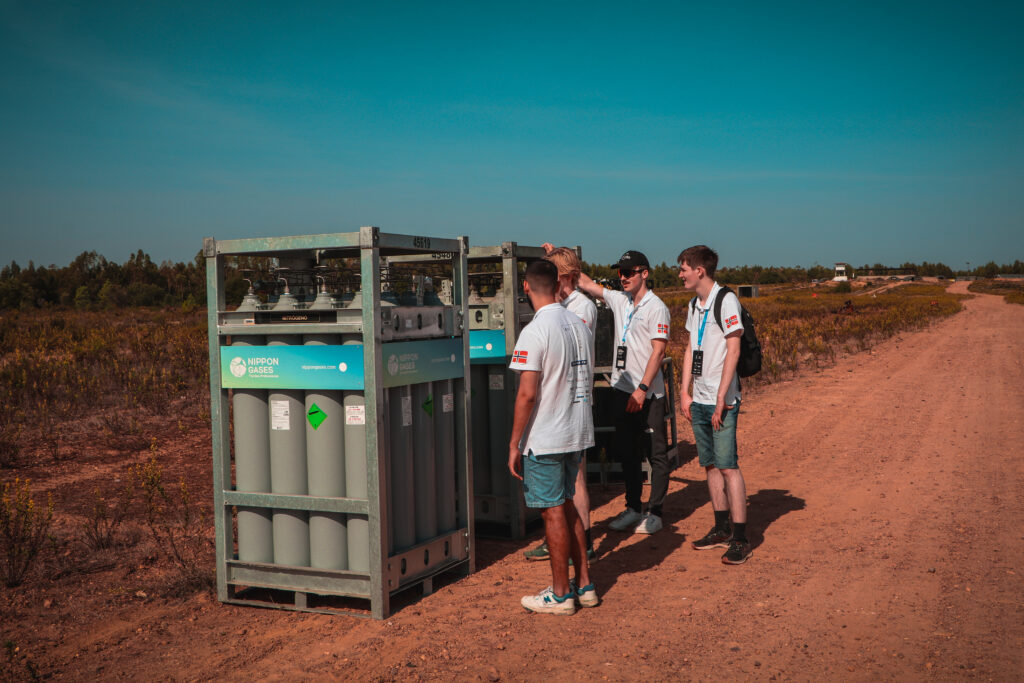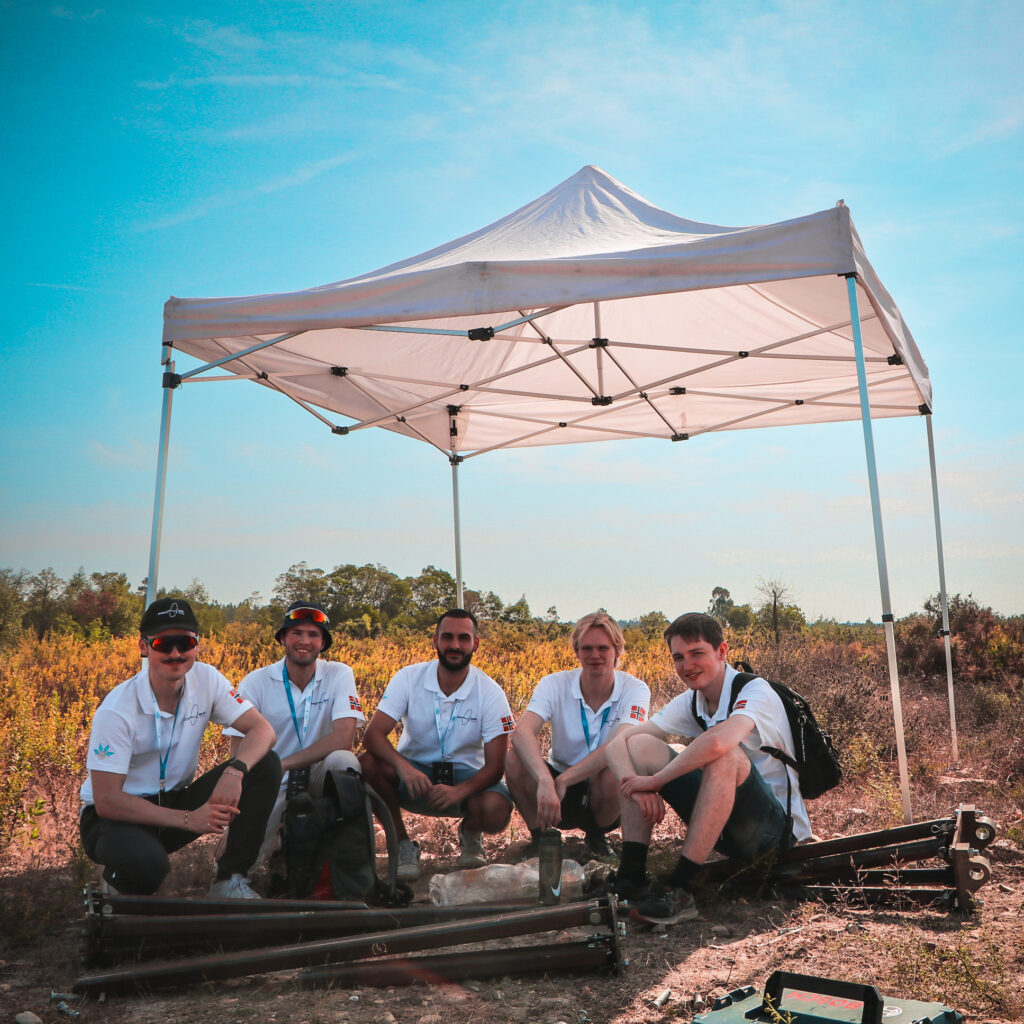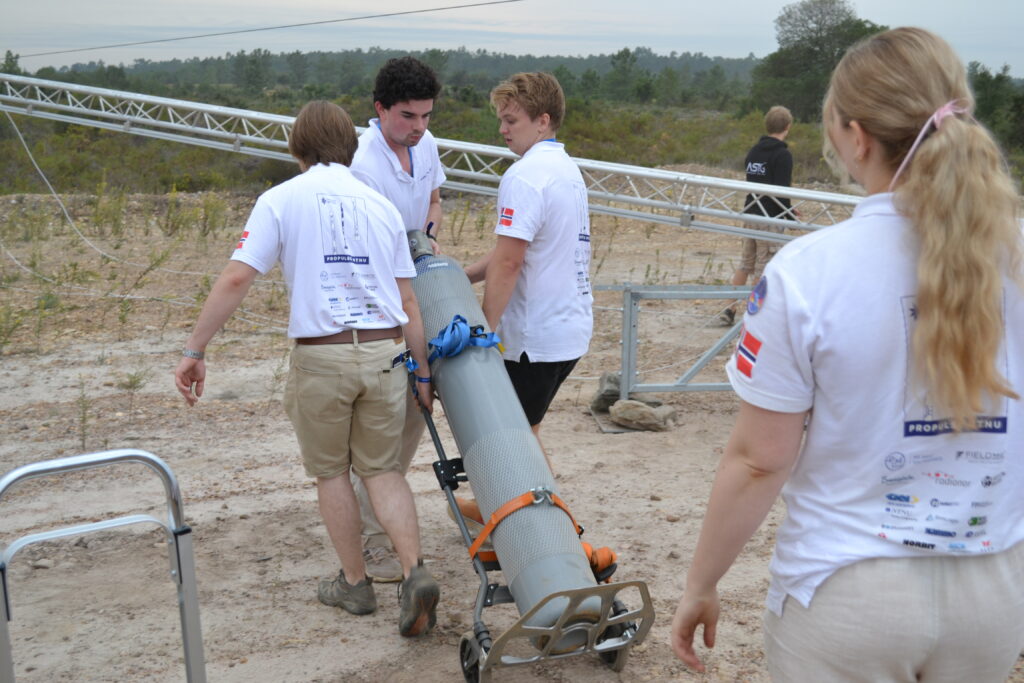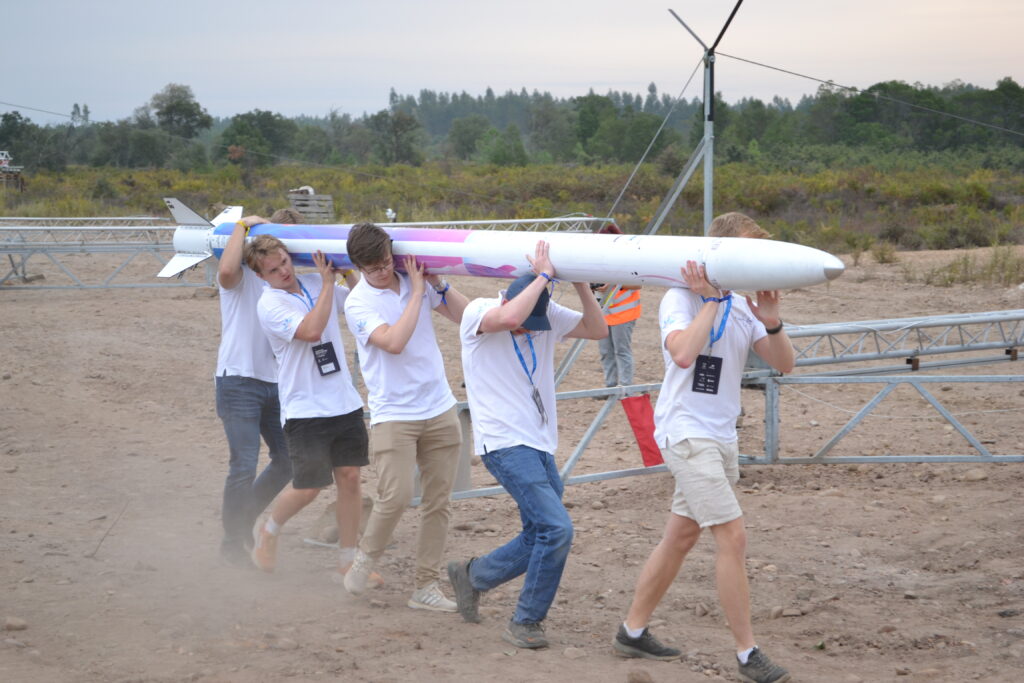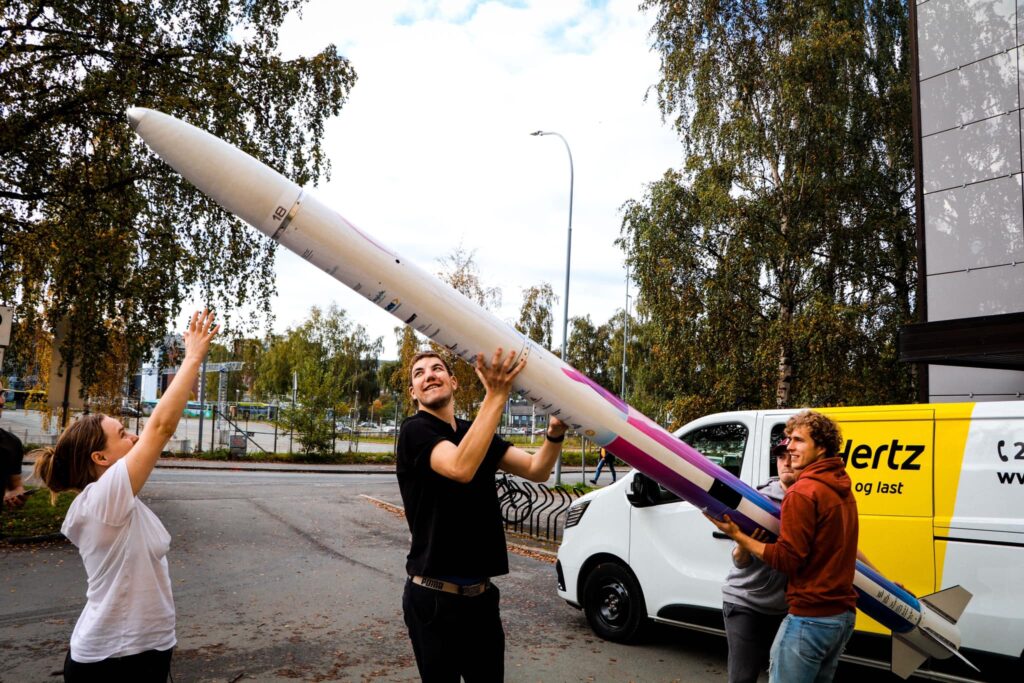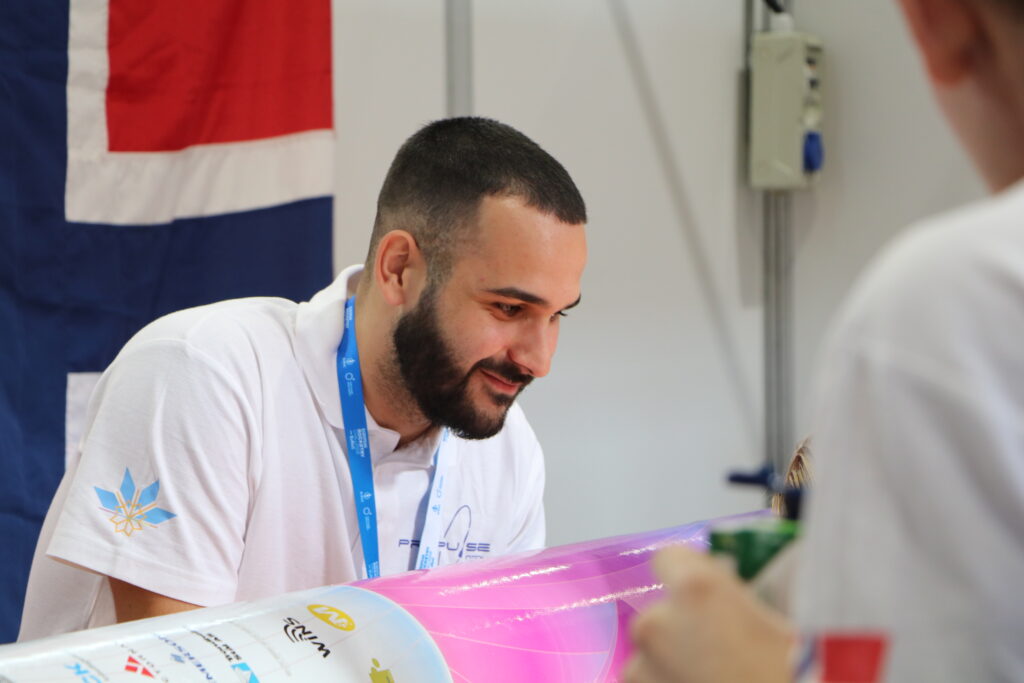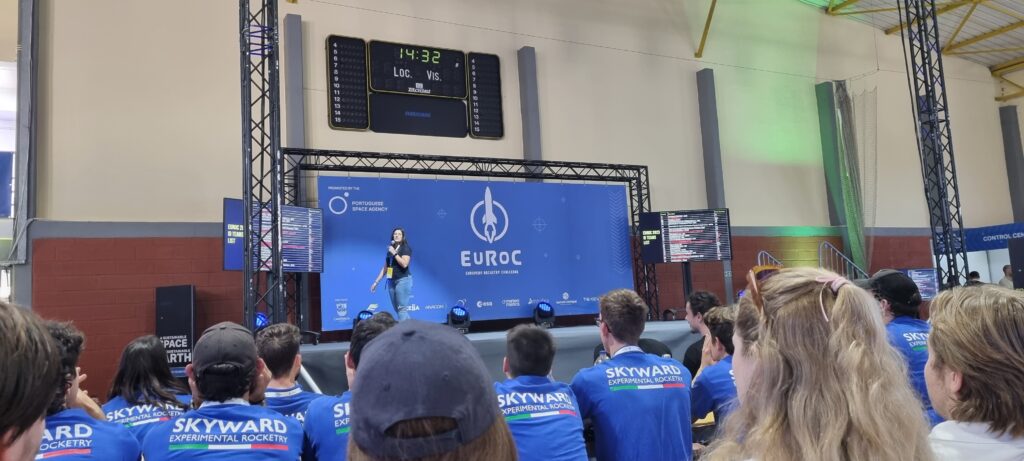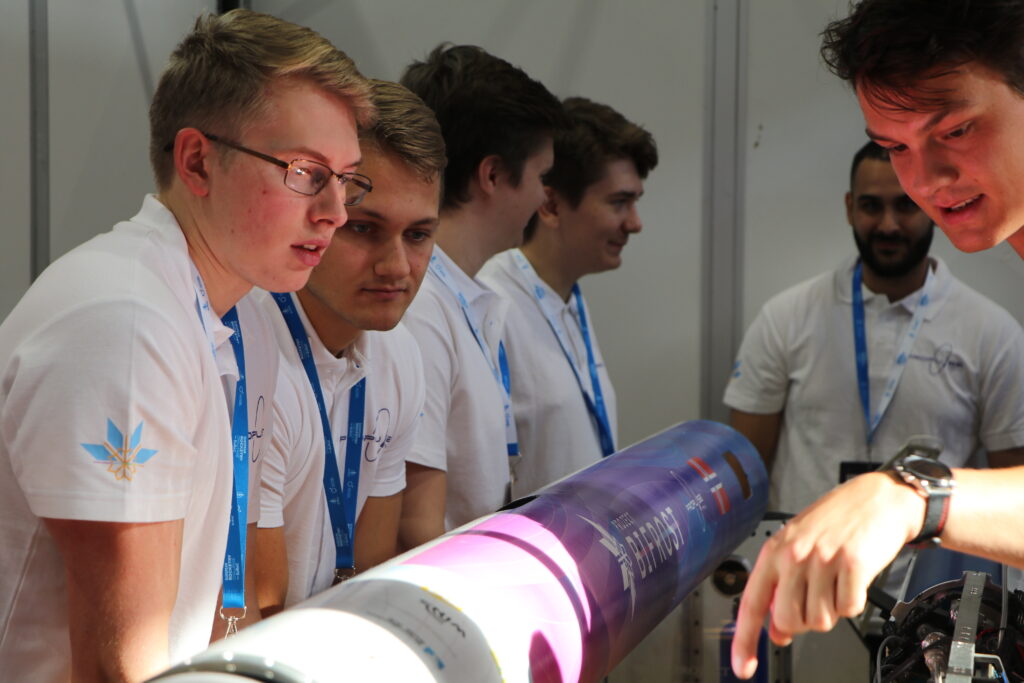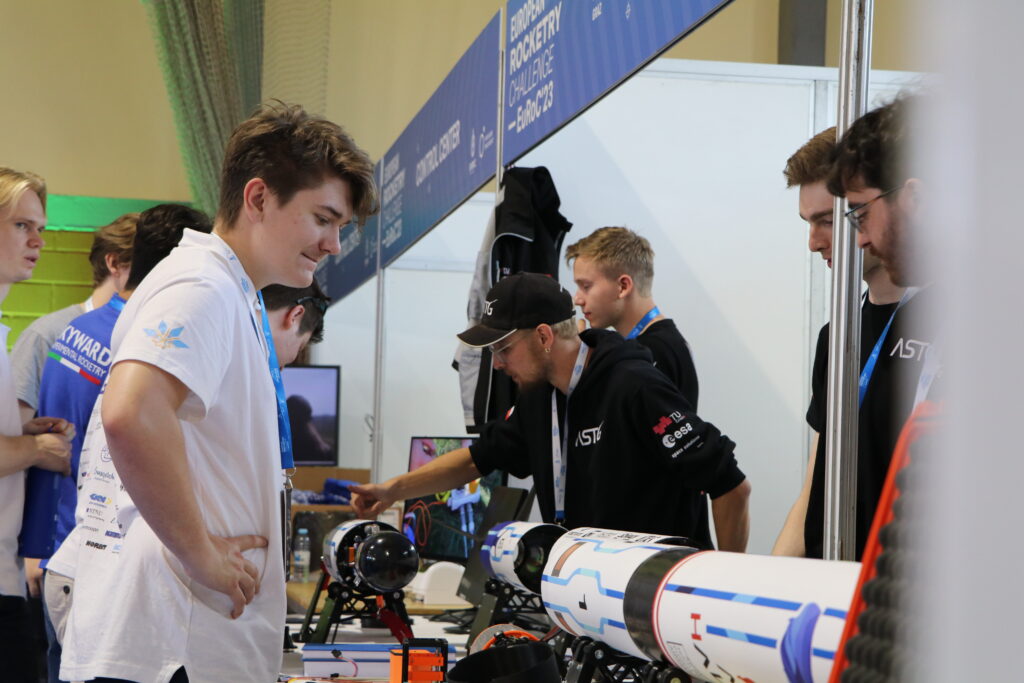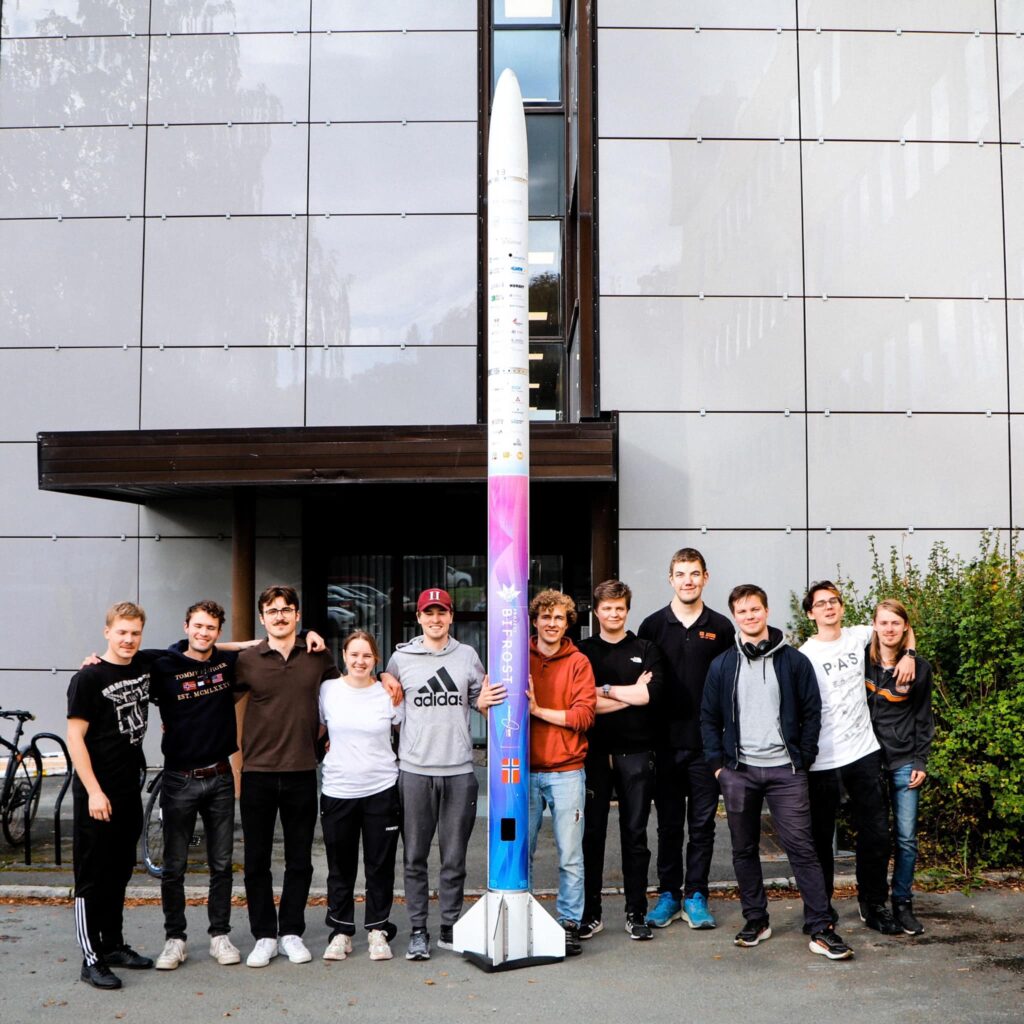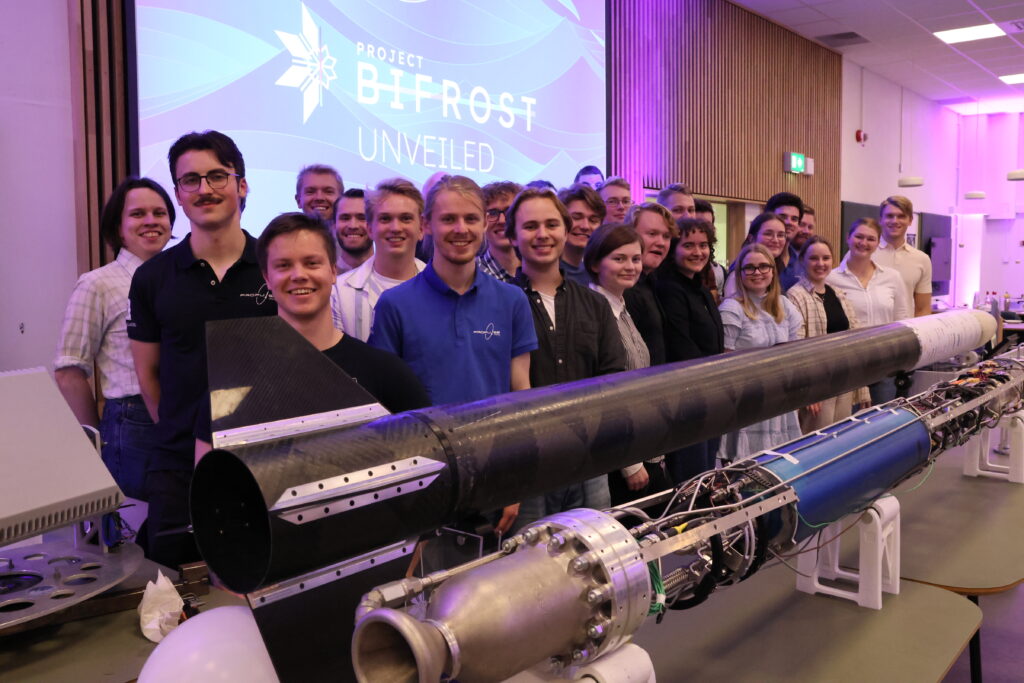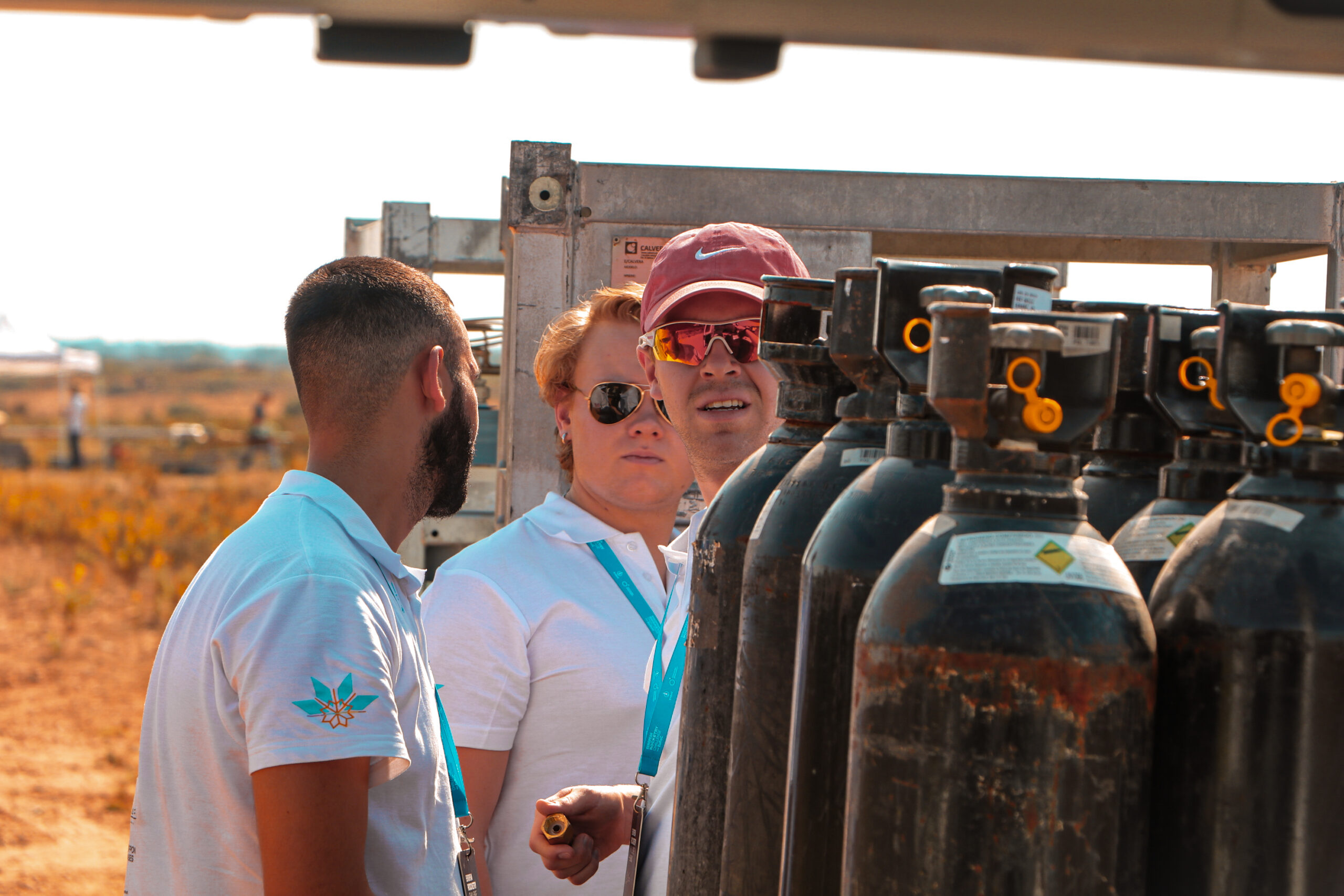After a slight delay due to technical issues, the launch took place at 12:17 Norwegian time.
“The Bifrost rocket is the largest physical rocket we have ever built,” said Simen Flåtter Flo, who leads Propulse NTNU, a student organization that develops research rockets and rocket motor systems.
Nineteen different teams from all over Europe are participating in The European Rocketry Challenge 2023 (EuRoC) in Portugal. Propulse NTNU represents Norway in the competition to become Europe’s top rocket team. Bifrost is one of four rockets powered by liquid fuel.
“There are many new features in this year’s rocket, not only for the students in Propulse but also for the Norwegian space industry,” said Flåtter Flo.
First Norwegian liquid fueled rocket
The engine has a thrust of 5 000 N. It is 3D-printed and runs on a combination of ethanol and liquid nitrous oxide. Bifrost is also the first Norwegian liquid fueled rocket. The speed is estimated to be Mach 0.8, which is equivalent to 988 km/h. Bifrost also carries a 3 kg test model of Orbit NTNU‘s satellite Biosat.
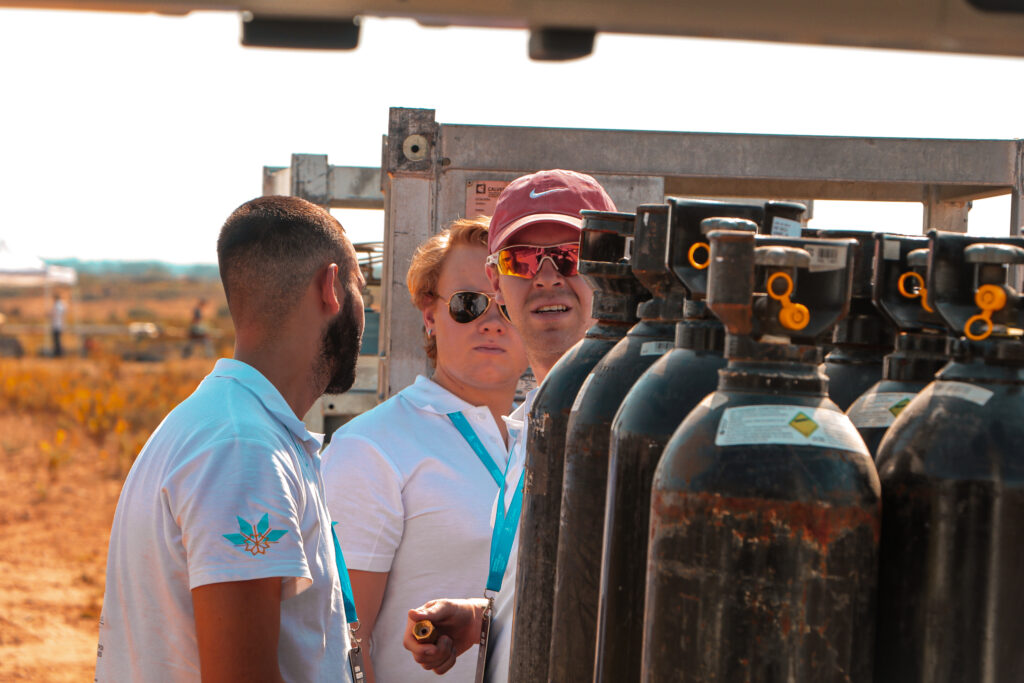
An enormous success
A total of 47 project participants from Propulse were in Portugal, with 15 of them arriving a week earlier to start preparations. The five-meter-long rocket was too large to transport on a plane, so it was transported in a rental car in multiple parts.
Challenges with fuel quantity and shorter burn time resulted in the rocket reaching a lower maximum altitude than originally planned. A seam also broke in the parachute, causing Bifrost to have a considerably harder landing than intended.
“All the key details worked, and the successful launch is, therefore, an enormous success for us. This is a giant leap for Trøndelag’s space program”, said Simon Flåtter Flo.
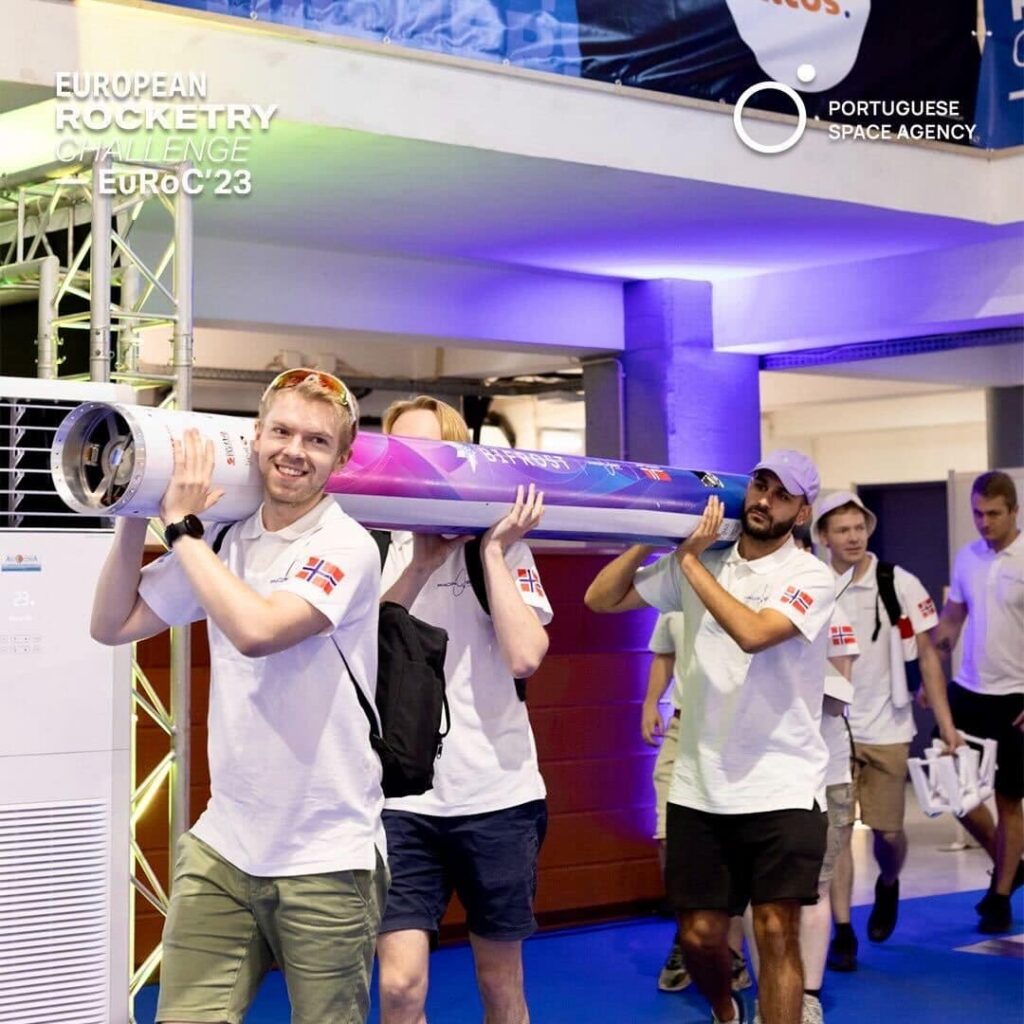
Our first real step toward space
“Project Bifrost is Propulse NTNU’s first significant step toward the goal of reaching space,” says Flåtter Flo. “We now see several things we can improve for the next rocket. Not only should it reach higher altitudes, but the launch in 2024 is also planned to take place in Trøndelag,” he added.
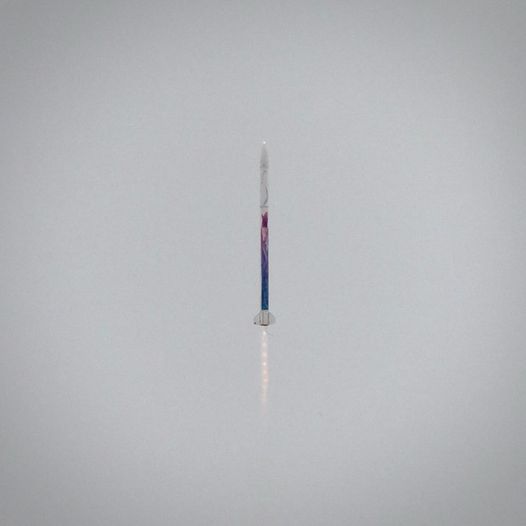
Bifrost Project, Technical Data:
Length: 4.9 m
Total Weight: 83 kg
Payload: A test model for Orbit NTNU’s Biosat satellite. Weight: 3 kg. Dimensions: 100x100x330mm
Engine: Custom-built, bi-propellant
Fuel: Ethanol & liquid nitrous oxide propellants
Thrust: 5000 N
Burn Time: 5 sec.
Acceleration: Up to 8G
Potential Launch Altitude: 3000 m
Maximum Speed (estimated): Mach 0.8 (988 km/h).
Launch Location: The Santa Margarida Military Camp, Constancia Portugal, October 2023.
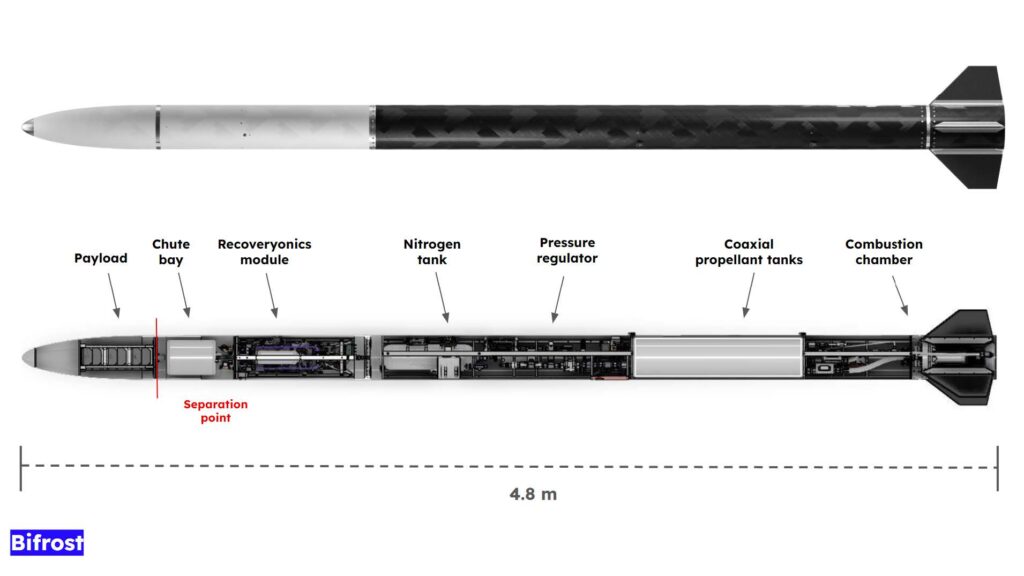
Video from the launch on Norwegian TV – NRK
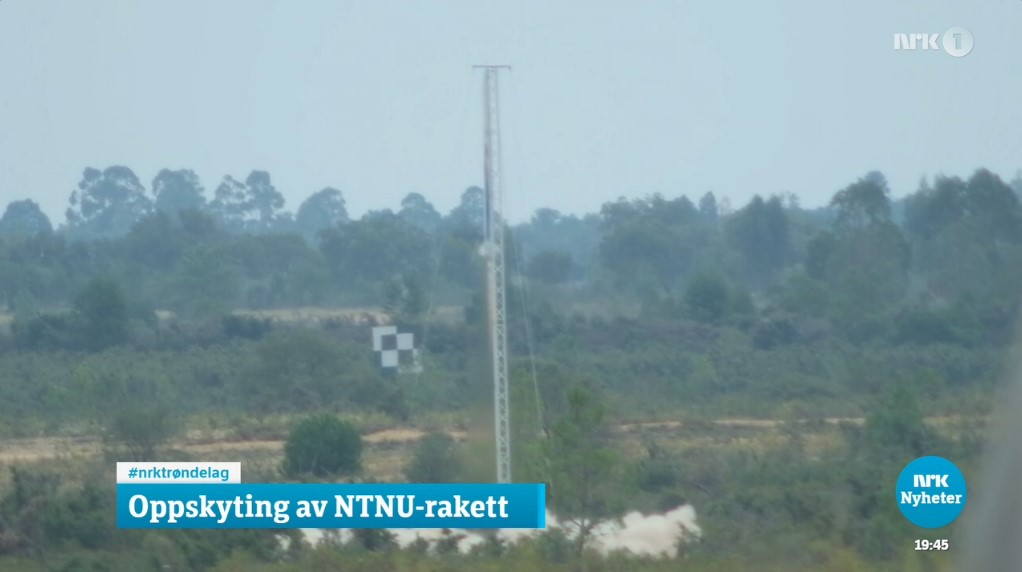
Watch video from the launch on Norwegian TV – NRK
Pictures from the preparations in Portugal
